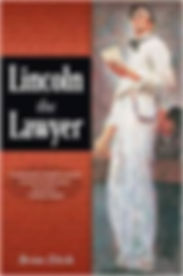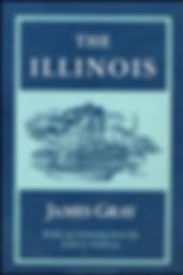Corn Kings and One-Horse Thieves
Odds & ends

Illinois past and present, as seen by James Krohe Jr.
The Corn Latitudes
It’s Only Fair
Gov. Rauner’s principled opposition to SB 1
Illinois Times
August 2, 2017
For decades, Illinois's antiquated school aid formula cheated schoolkids living in poorer districts.It took years of dogged jawboning to reform that formula to the satisfaction of a majority of legislators, but Gov. Rauner threatened to veto the bill as passed. The episode was typical of the way he handled major legislation both politically and philosophically.
In the end, lawmakers of both parties overrode Rauner's veto and the new system took effect.
Sooner or later, every rookie reporter must face the ugly facts: Somewhere, sometime, there will be a school board meeting she will have to cover. A veteran opinion monger like me faces a similar dilemma. As he seeks to meet readers’ demands for wisdom on a deadline, he must occasionally write about education funding. The fingers grow numb, the spirit rebels. But public schools matter, and state funding matters to public schools.
At issue at the moment is the fate Senate Bill 1. Bruce Rauner says he will veto or rewrite it in ways that would kill at birth a new formula that would finally remedy decades-old inequities in the way the state parcels out school aid. Under the proposed new scheme—which exists in large part because of the mulish persistence of state senator Andy Manar, the pride of Bunker Hill—every local school district would get what it gets now, but districts with lots of low-income kids would get more. Also, the state would start funding Chicago Public Schools’ teacher pension and retiree health insurance costs, which costs are already being paid for every other district in the state by the State of Illinois.
Bills like SB1 are why representative government was invented, being complex by nature and thus beyond easy comprehension by the booboisie. Rauner, who has a well-thumbed copy of The ALEC Guide to the Propaganda Arts on his bed table, has tried help out us dim bulbs by reducing the debate to three words: “Chicago,” “Madigan” (Downstate dialect for “Chicago”), and “bailout.”
Specifically, the governor and his backup singers refer to the Democrat-backed SB 1 as “a massive taxpayer funded Chicago bailout” because, as noted, the state would henceforth take responsibility for funding Chicago teacher pensions like it does for every other district. Unmentioned is the fact that the State of Illinois has been “bailing out” Downstate school districts since just after Lincoln’s horse died. The state does so by paying their share of their teachers pension costs while Chicago taxpayers paid not only their own teachers’ pension costs but (through their state taxes) those in other districts too.
Rauner insists this is throwing good money after bad, because CPS has mismanaged its pension programs, and as his stewardship of the executive branch shows, Bruce Rauner knows mismanagement when he sees it. But as Crain’s excellent Greg Hinz has pointed out, the state’s Teachers’ Retirement System, into which state taxpayers pour billions, has only 39.8 percent of the assets needed to pay expected liabilities compared to CPS’s 52.4 percent, so Downstate and suburban systems have, collectively, managed their money even worse.
There are other bits too. (It’s all so complicated that the governor needs to pay people to explain it for him—and to him, judging by his remarks about it.) The larger thrust of the changes affecting Chicago is to begin putting CPS on the same funding basis as the rest of the state. Rauner argues that fixing past unfairness is unfair, and has said he wants to take that money and hand it out instead to suburban and Downstate districts, thus bailing them out at CPS’s expense. I am heartened by the number of Downstate school superintendents who have said that they oppose this. (District 186’s Jennifer Gill is one; she backs SB 1 as written.)
I get that Chicago-bashing thrills his natural constituency, the rubes, and thus a veto might boost his approval rating from today’s eight percent to nine, maybe even ten percent. But Illinoisans are not all rubes. Such action is not in the electoral interests of either what’s left of the old Republican Party or the new, bought-and-paid-for Rauner Party, with which the GOP is in an alliance of convenience. It is, however, consistent with his agenda.
I have spent as much as ten minutes at a time thinking about Sir Rauner and his quest to deliver our innocent children from the hands of organized predators on the public purse—that is, unionized school teachers. I believe he understands, and accepts, that life is unfair. Not everyone does. Labor unions, for example, make it possible for those unfairly born on the bottom to organize themselves to take back some of the property, power, and privilege enjoyed by those unfairly born on the top. Rauner-ish libertarians in contrast are convinced that remedying unfairness as an aim of social policy —the bedrock of liberal social thought—is inimical, if not immoral. They don’t oppose fairness because it is cheered by liberals. They oppose liberals because they are cheered by the hope of fairness. And fairness is the point of SB 1. ●
SITES
OF
INTEREST
Essential for anyone interested in Illinois history and literature. Hallwas deservedly won the 2018 Lifetime Achievement Award from the Illinois State Historical Society.
One of Illinois’s best, and least-known, writers of his generation. Take note in particular of The Distancers and Road to Nowhere.
See Home Page/Learn/
Resources for a marvelous building database, architecture dictionary, even a city planning graphic novel. Handsome, useful—every Illinois culture website should be so good.
The online version of The Encyclopedia of Chicago. Crammed with thousands of topic entries, biographical sketches, maps and images, it is a reference work unmatched in Illinois.
The Illinois chapter of the American Institute of Architects in 2018 selected 200 Great Places in Illinois that illustrate our shared architectural culture across the entire period of human settlement in Illinois.
A nationally accredited, award-winning project of the McLean County Historical Society whose holdings include more than 20,000 objects, more than 15,000 books on local history and genealogy, and boxes and boxes of historical papers and images.
Mr. Lincoln, Route 66, and Other Highlights of Lincoln, Illinois
Every Illinois town ought to have a chronicler like D. Leigh Henson, Ph.D. Not only Lincoln and the Mother road—the author’s curiosity ranges from cattle baron John Dean Gillett to novelist William Maxwell. An Illinois State Historical Society "Best Web Site of the Year."
Created in 2000, the IDA is a repository for the digital collections of the Illinois State Library and other Illinois libraries and cultural institutions. The holdings include photographs, slides, and glass negatives, oral histories, newspapers, maps, and documents from manuscripts and letters to postcards, posters, and videos.
The people's museum is a treasure house of science and the arts. A research institution of national reputation, the museum maintains four facilities across the state. Their collections in anthropology, fine and decorative arts, botany, zoology, geology, and history are described here. A few museum publications can be obtained here.
“Chronicling Illinois” showcases some of the collections—mostly some 6,000 photographs—from the Illinois history holdings of the Abraham Lincoln Presidential Library.
I will leave it to the authors of this interesting site to describe it. "Chicagology is a study of Chicago history with a focus on the period prior to the Second World War. The purpose of the site is to document common and not so common stories about the City of Chicago as they are discovered."
Illinois Labor History Society
The Illinois Labor History Society seeks to encourage the preservation and study of labor history materials of the Illinois region, and to arouse public interest in the profound significance of the past to the present. Offers books reviews, podcasts, research guides, and the like.
Illinois Migration History 1850-2017
The University of Washington’s America’s Great Migrations Project has compiled migration histories (mostly from the published and unpublished work by UW Professor of History James Gregory) for several states, including Illinois. The site also includes maps and charts and essays about the Great Migration of African Americans to the north, in which Illinois figured importantly.
An interesting resource about the history of one of Illinois’s more interesting places, the Fox Valley of Kendall County. History on the Fox is the work of Roger Matile, an amateur historian of the best sort. Matile’s site is a couple of cuts above the typical buff’s blog. (An entry on the French attempt to cash in on the trade in bison pelts runs more than
2,000 words.)
BOOKS
OF INTEREST

Southern Illinois University Press 2017
A work of solid history, entertainingly told.
Michael Burlingame,
author of Abraham
Lincoln: A Life
One of the ten best books on Illinois history I have read in a decade.
Superior Achievement Award citation, ISHS Awards, 2018
A lively and engaging study . . . an enthralling narrative.
James Edstrom
The Annals of Iowa
A book that merits the attention of all Illinois historians
as well as local historians generally.
John Hoffman
Journal of Illinois HIstory
A model for the kind of detailed and honest history other states and regions could use.
Harold Henderson
Midwestern Microhistory
A fine example of a resurgence of Midwest historical scholarship.
Greg Hall
Journal of the Illinois
State Historical Society
Click here
to buy the book
Southern Illinois University Press
SIU Press is one of the four major university publishing houses in Illinois. Its catalog offers much of local interest, including biographies of Illinois political figures, the history (human and natural) and folklore of southern Illinois, the Civil War and Lincoln, and quality reprints in the Shawnee Classics series.
The U of I Press was founded in 1918. A search of the online catalog (Books/Browse by subject/Illinois) will reveal more than 150 Illinois titles, books on history mostly but also butteflies, nature , painting, poetry and fiction, and more. Of particular note are its Prairie State Books, quality new paperback editions of worthy titles about all parts of Illinois, augmented with scholarly introductions.
The U of C publishing operation is the oldest (1891) and largest university press in Illinois. Its reach is international, but it has not neglected its own neighborhood. Any good Illinois library will include dozens of titles about Chicago and Illinois from Fort Dearborn to
Vivian Maier.
Northern Illinois University Press
The newest (1965) and the smallest of the university presses with an interest in Illinois, Northern Illinois University Press gave us important titles such as the standard one-volume history of the state (Biles' Illinois:
A History of the Land and Its People) and contributions to the history of Chicago, Illinois transportation, and the Civil War. Now an imprint of Cornell University Press.




Reviews and significant mentions by James Krohe Jr. of more than 50 Illinois books, arranged in alphabetical order
by book title.
Run by the Illinois State Library, The Center promotes reading, writing and author programs meant to honor the state's rich literary heritage. An affiliate of the Library of Congress’s Center for the Book, the site offers award competitions, a directory of Illinois authors, literary landmarks, and reading programs.
